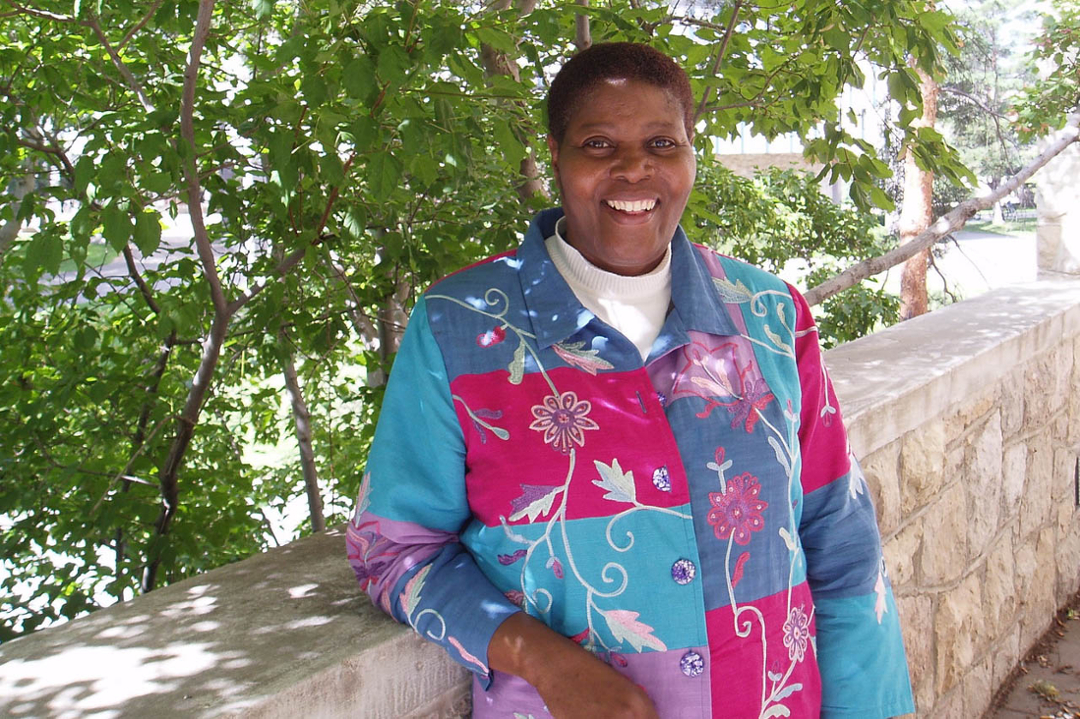
USask researcher works on project aimed at seeing adolescents flourish, awarded Templeton Foundation funding
Dr. Carol Henry (PhD) of the College of Pharmacy and Nutrition at the University of Saskatchewan (USask) is the lead researcher of an international team awarded $100,000 from the Templeton World Charity Foundation for work aimed at seeing young women on two continents thrive.
The team will gather empirical data from diverse groups of adolescents in Northern Canada and Northern Uganda to discover the determinants of flourishing in terms of physical, mental and cultural well-being among adolescents. Particular attention will be paid to the significance of spirituality and experiences of resilience in the face of chronic adversity, such as the long-term impacts of COVID-19.
“This is an important opportunity to learn from adolescent girls about their own perspectives on human flourishing within the context of Northern Canada and Northern Uganda,” said Henry.
She is joined by researchers from the University of Regina, University of Ottawa, Makerere University in Uganda and the World Vision humanitarian organization.
“This work is creating a critical platform for our future generation of youth leaders, to have a voice in the policies and practices that guide their own health and well-being,” added Henry. The team expects to contribute important lessons to research and community practice regarding the use of participatory arts, such as photovoice, storytelling, and club chat, for capturing the perspectives of adolescent girls.
The Templeton World Charity Foundation announced the 11 inaugural awards of the Grand Challenges for Human Flourishing, on Thursday.
More than 500 teams of scientists from more than 350 academic institutions around the world answered the request for ideas. The 11 awards represent the work of more than 40 researchers at more than two dozen institutions. This amounts to more than $1 million to encourage further exploration of these ideas and the advancement of discovery science in human flourishing. The awardees will advise the foundation on its next initiatives, as well as participate in webinars, articles and other opportunities to amplify the science.
“Human flourishing is an enormous, and as yet still largely uncharted, field for scientific inquiry,” said Templeton World Charity Foundation President Andrew Serazin. “We are incredibly pleased with the high calibre and scientific ambition of the ideas submitted. Successful ideas were those which had global relevance and comprised deep interdisciplinary teams.”
Broadly, human flourishing can include a range of dimensions under which human beings are at their best—physical, mental, social, and spiritual well-being—and it further suggests growth, resilience and progress. The contemporary study of human flourishing encompasses vast subject matter, from the role of artificial intelligence in democracies to the health benefits of forgiveness.
“This is an important opportunity to learn from adolescent girls about their own perspectives on human flourishing within the context of Northern Canada and Northern Uganda,” said Henry.
She is joined by researchers from the University of Regina, University of Ottawa, Makerere University in Uganda and the World Vision humanitarian organization.
“This work is creating a critical platform for our future generation of youth leaders, to have a voice in the policies and practices that guide their own health and well-being,” added Henry. The team expects to contribute important lessons to research and community practice regarding the use of participatory arts, such as photovoice, storytelling, and club chat, for capturing the perspectives of adolescent girls.
The Templeton World Charity Foundation announced the 11 inaugural awards of the Grand Challenges for Human Flourishing, on Thursday.
More than 500 teams of scientists from more than 350 academic institutions around the world answered the request for ideas. The 11 awards represent the work of more than 40 researchers at more than two dozen institutions. This amounts to more than $1 million to encourage further exploration of these ideas and the advancement of discovery science in human flourishing. The awardees will advise the foundation on its next initiatives, as well as participate in webinars, articles and other opportunities to amplify the science.
“Human flourishing is an enormous, and as yet still largely uncharted, field for scientific inquiry,” said Templeton World Charity Foundation President Andrew Serazin. “We are incredibly pleased with the high calibre and scientific ambition of the ideas submitted. Successful ideas were those which had global relevance and comprised deep interdisciplinary teams.”
Broadly, human flourishing can include a range of dimensions under which human beings are at their best—physical, mental, social, and spiritual well-being—and it further suggests growth, resilience and progress. The contemporary study of human flourishing encompasses vast subject matter, from the role of artificial intelligence in democracies to the health benefits of forgiveness.
